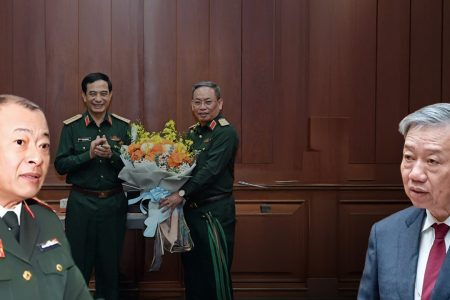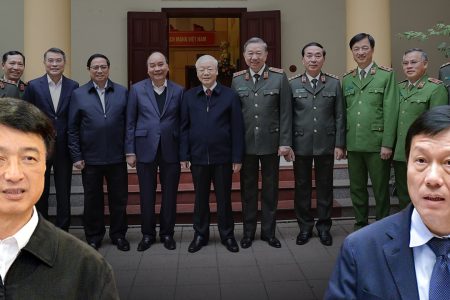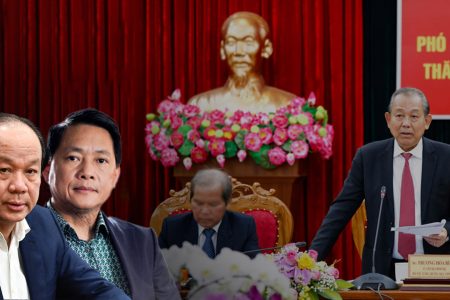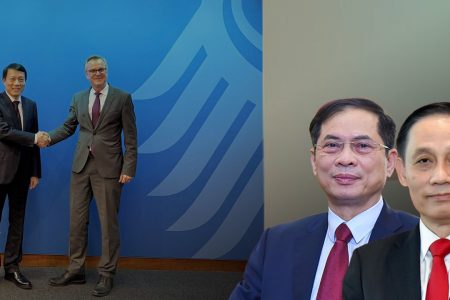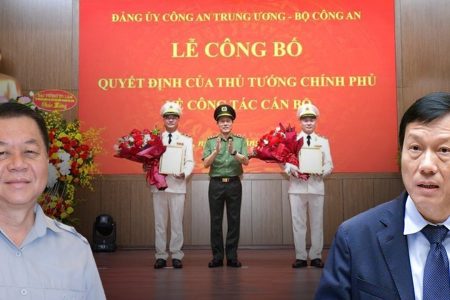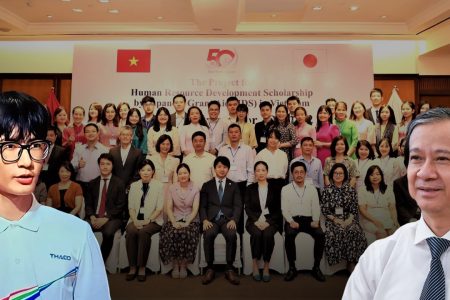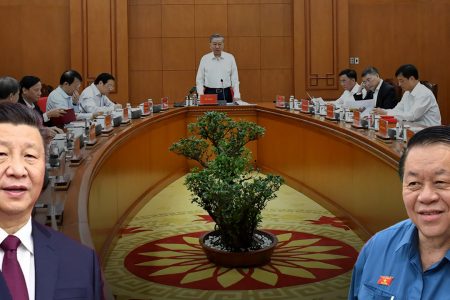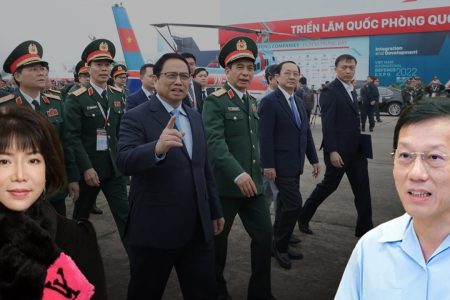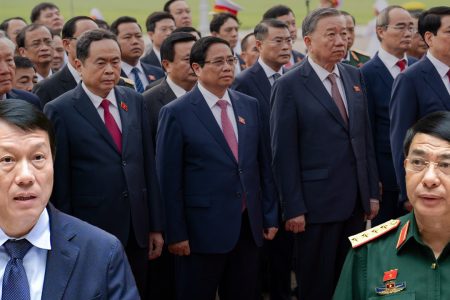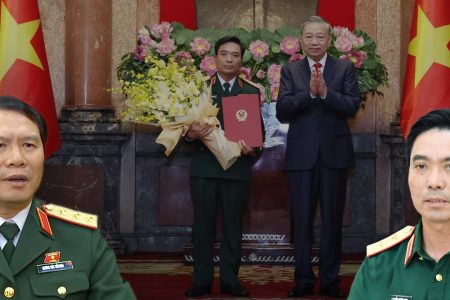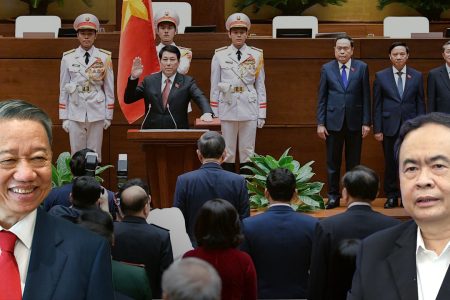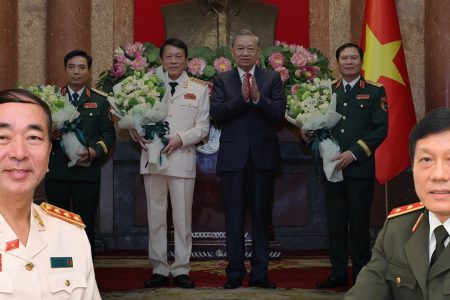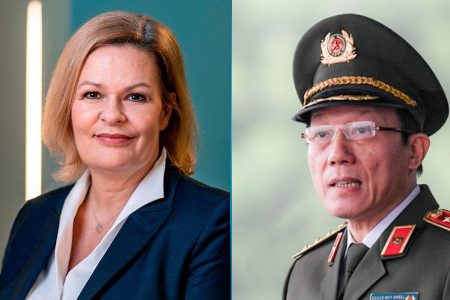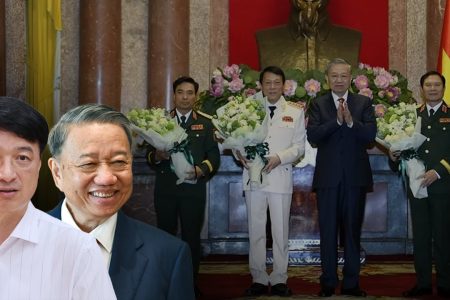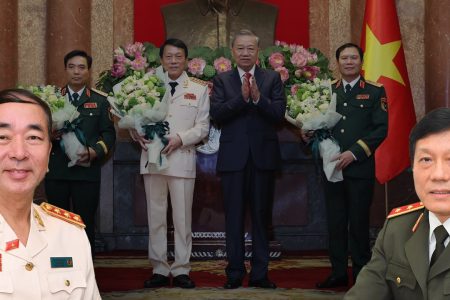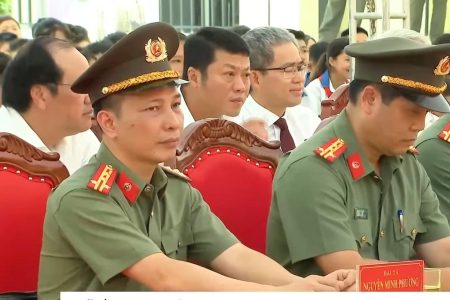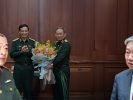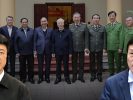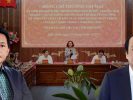
The amount of money that defendant Truong My Lan appropriated from Saigon Commercial Joint Stock Bank (SCB) amounted to VND304 trillion, more than the total assets of all 5 richest billionaires in Vietnam combined.
According to assessments, if all assets of Van Thinh Phat Group were recovered, it would be difficult to compensate for that huge amount of money.
Certainly, defendant Truong My Lan would not have been able to appropriate that amount of money without the support of state officials and civil servants, and certainly with the protection of very high-level leaders.
Social media opinion shows that, never before, has it been as fun to be a greedy official as it is now. As long as you don’t make promises, and just say “thank you“, when receiving gifts of up to $200,000, there is no crime, like “example” of former Hanoi Chairman Chu Ngoc Anh in the Viet A case.
Public opinion has been indignant and dissatisfied with the Vietnamese leaders’ cover-up and blame for the corrupt. People think that the anti-corruption agency needs to reconsider.
Yet, in the case of Van Thinh Phat and its Chairwoman Truong My Lan, once again, public opinion was surprised with the policy: “The person received money in the case of Van Thinh Phat and SCB Bank, but there was no agreement or no request” asked, will not be criminally probed, but will be disciplined by the Party and administratively handled.”
This is real news, not fake news from hostile forces, and is official information from state media. VnExpress online on November 22, had a news article with the title: “Exemption from criminal liability for those who do not benefit when receiving money from SCB.”
The news said that on the afternoon of November 22, Deputy Central Commission for Internal Affairs Nguyen Van Yen said that the amount of bribes received in the Van Thinh Phat case was “the largest ever.”
This news also takes the case of Do Thi Nhan, former Director of Inspection and Supervision of the State Bank of Vietnam, who was accused of receiving $5.2 million to cover up violations for SCB Bank. According to Mr. Nguyen Van Yen, “Prosecution agencies have researched and analyzed the level and nature of violations to evaluate each case.”
Accordingly, “people who receive large amounts of money and cause particularly serious consequences must be probed and tried. Few recipients, no motivation; receive money during holidays such as allowances and gifts; If you do not commit to doing anything to benefit the party giving money, the reasons and circumstances will be carefully considered. These cases will not be handled criminally but will be strictly handled in terms of Party discipline and administration.”
At the same time, Deputy Head of the Central Commission for Internal Affairs Nguyen Van Yen said that the policy of such handling is “understanding and reasonable.” In the Viet A case, the Anti-Corruption Agency also has a policy of forgiving and exempting people with secondary and dependent roles from being handled, and must follow orders, without any motive of profit in their actions in epidemic situation.
Public opinion sees that the policy of “thorough and reasonable” handling by Deputy head of the Central Commission for Internal Affairs Nguyen Van Yen is actually a rescue solution for corrupt officials, who will be freed or have their charges reduced when brought to trial.
This is an extremely unreasonable proposal. This policy will create legal grounds to shield corrupt officials. That is completely contrary to the anti-corruption policy of “no prohibited areas, no avoidance zones” of General Secretary Nguyen Phu Trong.
But this is also the policy of General Secretary Nguyen Phu Trong, which is: “Any cadre who has made mistakes and then voluntarily asks to stop, voluntarily return the money, will be ‘exempt or lightly punished’; And it’s not good to be punished harshly, it’s not good to remove everyone from office…”
That issue was even resolved by the Politburo and the Secretariat of the Communist Party of Vietnam at the request of the General Secretary.
This was clearly shown in Notice No. 20/BBT-TW, dated September 8, 2022 of the Politburo, on allowing leaders, from Central Committee members and above, if corruption consequences have been resolved and proactively resign from office, will be exempt from criminal prosecution.
Also related to Deputy Head of the Central Commission for Internal Affairs Nguyen Van Yen, in the news “Deputy Head of the Central Commission for Internal Affairs: There is no way to capture Nguyen Thi Thanh Nhan and hide it” published in Thanh Nien newspaper on May 10, There is an illustration photo of Yen. This photo shows that on the left hand of Deputy head of Central Commission for Internal Affairs Nguyen Van Yen, he is wearing a Patek Philippe watch worth $250,000. When there was too much discussion on social networks, the photo was edited by cutting off the part of the hand wearing the watch.
Apparently, a leader of the Central Commission for Internal Affairs wears a copper plate worth $250,000, equal to 32 years’ salary, further proving that: “… the policy is that people take few bribes and have no motivation” or receive money during holidays such as allowances or gifts; and do not commit to doing anything to benefit the party giving money…, will not be criminally prosecuted but will be strictly handled in terms of Party discipline and administration” which is a blatant violation of state law. It is even a policy to protect corrupt officials, as well as encourage corruption.
Thoibao.de (Translated)



